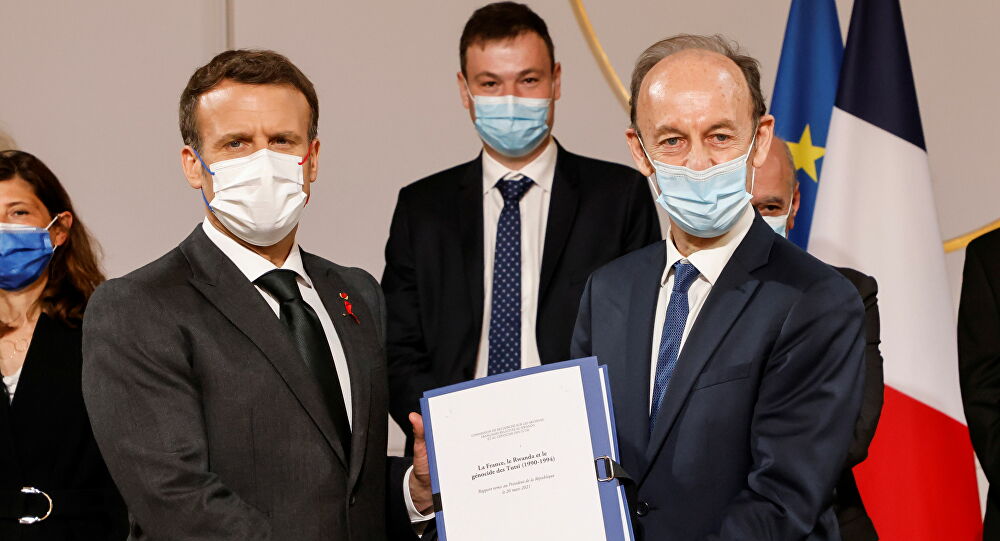In our previous commentary, we had explained how President Sarkisian had started criticizing Turkey at every opportunity after suspending the ratification process of the Protocols on 22 April 2010. Foreign Minister Edward Nalbandyan has also gone along the same path, but has generally used a stronger language. Based on his long interview delivered to “Profile” newspaper of Austria on June 15, the main criticisms could be summarized as follows. The Armenian Foreign Minister has said that Turkey has blocked the ratification of the Protocols in the Assembly for nine months. First, we should note that from the signing of the Protocols to the so-called interview, not nine but eight months have passed. Then, we should remind that the Turkish Government had sent the Protocols to the Turkish Grand National Assembly in the same month they were signed (October 2009). On the contrast, the Armenian government has sent the Protocols some months later to the Constitutional Court, which is the first step of the ratification process and has submitted the Protocols to their own Assembly after the decision of this Court taken in January. What is important is not the timing of the Protocols being sent to the Assembly, but the suspension of their ratification process, which Armenia is the only one responsible for. For some reason, Armenia has not been criticized within the international community for their decision. Nalbandyan has explained this situation as “all the Armenian steps on the normalization process were commended by the whole international community. Even the decision on suspension of the ratification process was met by understanding”. With the US and the EU at the forefront, countries showing interest in this issue have been pleased with Armenia suspending the Protocols, rather than entirely rejecting them. However, by doing this, they have encouraged Armenia who does not deserve this at all and have shared in the responsibility of delaying the normalization of relations with Turkey to an undefined date. In fact, it could be seen that Armenia is not willing to revive the Protocols at a foreseeable date. In response to the reporter’s question of whether he sees rapprochement with Turkey go ahead soon, Nalbandyan has answered that they hope the process of normalization is not dead, but suspended and that they will be ready to move forward if there is again a partner in Turkey ready to move forward with the normalization. The interesting point in the Armenian Minister’s statements is the phrase of “a partner in Turkey ready to move forward”. Since they are unable to get along with the present Turkish Government and the main opposition parties in Turkey are also against the Protocols, one could conclude that the Armenians cannot find the partner they desire in Turkey. Another issue is the allegation that after the signing of the Protocols, Turkey has backtracked and started again to speak in the language of preconditions. Remembering the events, it could be seen that these are not true. A long time before the signing of the Protocols, Prime Minister Erdoğan had made many statements in which he linked the opening of the border to the settlement of the Karabakh conflict. The most important of these is his speech delivered in the Assembly of Azerbaijan in Baku in 13 May 2009, in which he has expressed that the closing of the Turkish border in 1993 was the result of the occupation of Azeri territories, thus the opening of the Turkish border will take place only after the occupation comes to an end. This speech was delivered five months before the signing of the Protocols. Later on, at every opportunity, Prime Minister Erdoğan has drawn a link between the implementation of the Protocols and the Karabakh conflict. Therefore, Armenia knew very well that Turkey would link the implementation of Protocols to the settlement of the Karabakh conflict during the negotiations of these documents and still signed the Protocols despite it. However, it is understood that Sarkisian and his government tried to hide it from their public with domestic policy considerations in mind. In fact, during the signing ceremony of the Protocols in Zurich on 10 October 2009, Edward Nalbandyan first objected to signing them by putting forth that some statements associated with the Karabakh conflict exists in Ahmet Davutoğlu’s speech. The time that passed has displayed that this was a kind of show towards the Armenian public opinion. Another issue which the Armenian Foreign Minister has touched upon is Prime Minister Erdoğan’s statements regarding the sending back of Armenian citizens working illegally in Turkey to their country. Just as President Sarkisian did, Nalbandyan also tried to connect these statements and the 1915 events and has stated that the Armenian “genocide” started with exactly such statements in 1914-1915 and later in the end of the 20th century, massacres and deportations of the Armenian population of Azerbaijan were accompanied by such kind of racist statements. There are three points here which requires attention. The first is the 1915 events and the assumption of a deportation of Armenians working in Turkey, which has not taken place, being considered on an equal footing. The second is bringing the subject of the Armenians to the agenda, who have been obliged to leave Azerbaijan as a result of battles over Karabakh, although this has nothing to do with this subject. The third is accusing Turkey and Azerbaijan with racism. These harsh statements could actually signify the Armenian Foreign Minister not wanting to reconcile with Turkey anymore. Another statement of the Armenian Foreign Minister which draws attention is that they did not put the Armenian genocide recognition by Turkey as a precondition for normalization of their relations and Turkey should reconcile with its own past to be able to build its future. In a setting where everyone in Turkey perceives the genocide allegations as an insult towards the Turkish nation, besides a very small minority which questions the Republic’s values and virtues, linking the future of Turkey to the Armenian “genocide” allegations is at least an odd behavior. On the other hand, Nalbandyan has remained silent about why they have not requested from Turkey to recognize the genocide allegations, which they have bestowed great importance upon. In fact, the Armenian Minister has not wanted to confess that if they do this, it would be impossible to establish any kind of relations with Turkey. We believe that the most important words of the Armenian Foreign Minister is his mentioning that inside Turkey there are certain processes and movements calling for the “genocide” recognition. Nalbandyan has stated that right after they initiated the normalization process, several Turkish intellectuals started an internet campaign, which was called "Apology campaign" and just in a few weeks 35 thousand people signed the petition. Moreover, he has also said that for the first time in 95 years on April 24, the Armenian “genocide” was commemorated at Istanbul’s Taksim Square and he emphasized his hopes that one day Turkey will recognize the Armenian “genocide”. It is true that there was an apology campaign in Turkey and that April 24 was commemorated this year, but these types of actions are not politically significant since they are conducted by a very small group. However, considering that these actions are increasing each year, that these are supported by many publications which freely defend the Armenian “genocide” allegations while actions and publications rejecting the allegations have almost come to a standstill, it is possible that after a while, those wanting the recognition of the Armenian “genocide” will reach a substantial number. In response to a question of the reporter from “Profile” newspaper, Edward Nalbandyan has said that since its independence, Armenia has never made any statements on territorial claims from Turkey. In Armenia and the Diaspora, the belief that Eastern Anatolia is Western Armenia is highly widespread. Despite this, Armenia has not formally made any territorial claims. This contradiction could be explained with two reasons. Firstly, territorial claims, which have caused world wars and deaths of millions of people in the past, have not been accepted, in principle, by the international community and public opinion. Secondly, Turkey is very sensitive to these kinds of issues and would most probably consider any territorial claims as “casus belli” (reason for war). The fact that today there are no territorial claims is not binding upon the future. For extreme nationalists like the Dashnaks, territorial claims from Turkey have been left to the future where the conjuncture is suitable for Armenia and inappropriate for Turkey. Meanwhile, it should not be forgotten that statements in the First Protocol referring to the mutual recognition of the existing border between the two countries has been interpreted by the Armenian Constitutional Court as the border being recognized only as “de facto”. The Armenian Foreign Minister has approached a question on compensation to be given to the relocated Armenian descendants rather cautiously and has stated that this is only an assumption and that there are descendants of Armenians all over the world who lost their properties back then, and that they could have juridical ways to proceed with their demands with or without recognition of the “genocide”. The properties left behind by individuals forced to migrate following the wars, especially during the collapse of empires, have always created problems. Starting with the first years of the Republic, the Turkish governments have dealt with the properties of Turks who have been forced to migrate to the mother land and to that end some agreements have been signed, which have not been very satisfactory. For the period of the First World War, there are provisions in the Treaty of Lausanne which provide that Ottoman citizens who left the country during the war, when returning, could reclaim their properties and could file a lawsuit for this when necessary. However, a time limit has been set for these types of claims and these timings have already expired. Therefore, it is not possible anymore for those who did not reclaim their properties back in time to make such claims. Although Edward Nalbandyan has not mentioned it, a few months ago, Prime Minister Tigran Sarkisyan has expressed that the Sub-commission on the Historical Dimension foreseen in the Second Protocol would not address the genocide allegations, but would deal with the “results of genocide” which encompasses the question of returning of properties. In conclusion, it could be said that the interview delivered by the Armenian Foreign Minister Edward Nalbandyan to the “Profile” newspaper entails Armenian official views regarding the existing problems between the two countries. What is important here is that almost none of these correspond to Turkey’s views. In short, the Turkey-Armenia conflict is continuing and for the time being, the possibility of reconciliation is not in sight.
© 2009-2025 Center for Eurasian Studies (AVİM) All Rights Reserved
DRAFT RESOLUTION ON “GENOCIDE” IN THE US SENATE (II)
 INCOHORENCE OF THE WEST: ASSERTING A CLAIM OF GENOCIDE WITHOUT QUESTIONING THEMSELVES
INCOHORENCE OF THE WEST: ASSERTING A CLAIM OF GENOCIDE WITHOUT QUESTIONING THEMSELVES
COURT VERDICTS AGAINST ARMENIANS ARE BECOMING THE RULE
 FRANCE HAS BEGUN TO SHED SOME FACTUAL LIGHT ON ITS ACTIONS IN RWANDA
FRANCE HAS BEGUN TO SHED SOME FACTUAL LIGHT ON ITS ACTIONS IN RWANDA
 ACADEMIC ETHICS AND ARCHIVES: THE KRIKOR GUERGUERIAN ARCHIVE ADDS LITTLE NEW TO THE DEBATE
ACADEMIC ETHICS AND ARCHIVES: THE KRIKOR GUERGUERIAN ARCHIVE ADDS LITTLE NEW TO THE DEBATE




























